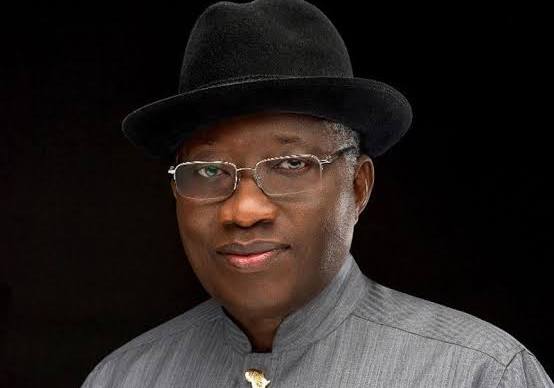“Lead the change you want to see”
–
By Adamu Muhd Usman.
Six months is too short to assess a government, but when a government shows signs of excellent performance, six months is a good time to assess it and offer some suggestions.

We maybe right and also certain that, governor Malam Umar Namadi knows and understands the problems of our dear state, Jigawa, the system of governance in relation to all necessary reforms. He should be reminded that, he will lead the state up to 2027 In-Sha-Allah. It is our sincere hope that the confidence reposed in him by the people and the expectations in terms of selfless service should constitute the motivational force in all his deliberations, programmes and activities, for which there should be positive and urgent changes in his style of leadership for continuity with meaningful developments, which the people of Jigawa have enjoyed, benefitted and witnessed in the previous administrations especially during the time of Dr. Sule Lamido (CON)
Six months of governor Namadi in office was characterized by high expectations, criticism, appraisal and all that.
There are six major things Malam Umar put in place from his coming as Jigawa governor which attracted the attention of citizens.
The first is education. The recruitment of new and more J-Power (J-Teach) staff and making or confirming the previous casual staff as permanent workers. The resumption of primary 1, JSS 1 and SS1 students on the first day of resumption in first term as against what was obtainable in the past, when they will resume in second term. The payment of teachers salary on the 25th of every month. The increments of school feeding allowance for boarders and the scholarship issue are also positive developments, as well as others
The second aspect is in the Health sector. The revisiting/renewal of the free medical package for pregnant women and children under five. The recruitment/employment of 2,000 health workers. The unscheduled visitations to hospitals by the governor and other new policies introduced to improve health care delivery are commendable.
The third is employment and empowerment aspects. The intended initiative in 2024 budget proposal to create some ministries, MDAs and government agencies.
(a) Jigawa State ICT and Digital Economy Agency
(b) Jigawa State Hisba Board (Establishment act already existing)
(c) Jigawa State Tsangaya Schools Management Board
(d). Jigawa State Residence Identity Management Agency
(e) Jigawa State Anti-Corruption Agency (Establishment act already existing) are all policies that are on the right direction. These will also lead to division of labour in work places thereby reducing the workload and creating efficiency and commitment among the staff and the leadership of all sectors. It will also create job opportunities, reduce unemployment and eradicate poverty. The benefit of moral aspect is also there. The empowerment items and money given to people especially women at fifty thousand naira each (#50,000) across the state is a way to reduce poverty.
The fourth issue is Agriculture. The provision of tractors, farm implements, seedlings and the subsidy of fertilizer of about 40% is a welcomed idea. Also the technical and preventive measures put in place to halt or reduce the devastating flood in Jigawa for which the people have been subjected to hardship for many years in the past has brough relative calm in people’s minds and it is a source of hope for them
The fifth is revisiting the pension aspects (package) in totality and in reality. Because workers have started feeling the pains of delay in getting their entitlements after retirement.
The six issue is the farmers/Herdsmen conflict resolutions. Besides other things.
It is also paramount to use this avenue to make six appeals
Your Excellency,
During the tenure of Dr. Sule Lamido CON, he provided the 27 Local government Headquarters in the state with streets light which made the towns look like big cities and help or facilitate the safety and security of lives and properties in the towns. Nevertheless, the lights also serve as a motivating factor for the people to carryout their normal businesses, events and ceremonies and move freely to their destinations at all times even during rains and Boko Haram’s activities without any fear of intimidation, victimization, humiliation, deprivation and attack. Even before the this present administration came on board, the street lights in some places and precisely in my home town, Kafin-Hausa have been on and off. Even some were not working at all presently. We still urge Malam Umar to look at that aspect add more solar lights as former governor, Alhaji Abubakar Badaru did.
The second is on Agriculture. As this government has been showing commitment from its inception to Agricultural production as it promised to boost the sector in terms in the state in the area of small and medium scale eterprises as one of its top agendas, We hope that, farmers in the state will continue to enjoy the maximum support in crop production, including the use of mechanized farming system in order to encourage and support livestock farming which will go a long way to reduce or stop clashes between the farmers and Herdsmen
Third is health sector. We still hope Malam Umar will continue to look at the health sector which is very important, as he promises more clinics/ hospitals would be built for us with the hope that the existing ones would be renovated and up-graded. We still hope all will be maintained with adequate equipments, drugs and qualified and sufficient medical staff with their incentives given or paid promptly. How we wish his excellency will revisit the Haifuwa Lafiya Scheme.
Fourth.
‘Social security ‘
(a) Allowance: persons With Disability used to get allowance across the state on monthly bases.
One hundred (100) of them were selected from each of the 27 L.G.A in the state based on merit and were paid some stipend. So, there is a need to revisit and review the package and probably increase the number of the beneficiaries and to replace those who died.
(b) Windmills:
These are over fifty (50) modernized solar water pumps fixed or constructed across the state in the bushes during Lamido’s tenure which provide drinking water for herders and their cattle and other citizens during dry season. But closer observation has shown that, most of them are no longer working/functioning. Please do something urgent about this issue
(c) Towns and streets encroachment:
In some major towns in the state, encroachment in to the streets and pathways by people eho expand their house boundaries and business places are very common and spreading all over the state which makes the towns look to look unkempt, congested and overcrowd. The state government should revisit the township planning act, instruct LGA Chairmen with the collaboration of security agencies, traditional rulers and community associations to report, stop and arrest anybody with this act and also religious leaders should be intimated to engage in preaching by bringing out the consequences of land encroachment based on religion perspective.
Number five is Unemployment. It is a serious menace in the state. Many youth (graduates) are roaming the streets, willing and ready to work but the jobs are not just there. Even the empowerment/employment programme (J-Power or J-Teach) was not properly implement because proper modalities of its actualization and stability is lingering since from its formation in the previous administration.
Governor Namadi’s administration should give serious attention to the state varsity. (Sule Lamido university, Kafin-Hausa) because there is a great need to build or establish more faculties/departments most especially that of medicine in the varsity to reduce or stop sending Jigawa indigenes abroad to study medicine and other courses in order to save cost and improve the varsity which will go along way to attracting or get more income for the state in which non indigenes can come there to study various courses of their choice because Jigawa state is one if not the most safest, secured and affordable state in the country. And the varsity has many facilities on ground that can attract everyone as students or as a staff to live there which it can also compete with many if not all Nigerian universities. So, there is need for the Governor to do something urgently in the varsity in order to move the varsity and the state forward.
Sixth appeal. You should as well bear with any criticisms, opposition and problems that might have come your way. It is good to continue to be honest, faithful and dedicated to accountability and transparency as the focus of your government, in line of thinking of positive ways to initiate new programmes and maintain what the previous administrations did in the state in order to move the state forward.
We still appeal to Malam Umar to be on the look out, because there are certain groups of people who want to sabotage his effort, advice him on unpopular policies, disorganize the state and its people, and destroy the humanitarian relationship that exist, create enmity, hatred, and encourage envy, hostility. They also hearten lack of respect for the political leaders in the state. You should do everything possible to have a peaceful, united and a progressive Jigawa.
Remember, united we stand divided we fall. And coming together is a beginning; keeping together is progress while working/living together in peace is a Success and we want you to be successful most especially because of the state and our children.
We want to also remind His Excellency, Governor Namadi to know that, one of the major factors that made the previous administrations successful was the good working relationship the governors had with the state legislatures, the advice from the traditional institutions, the elders and the Ulamas etc.
The Jigawa people are praying and hopeful of sustaining this good start by Gov. Umar. May Allah help and guide our leaders aright.
Adamu writes from Kafin-Hausa, Jigawa state.




